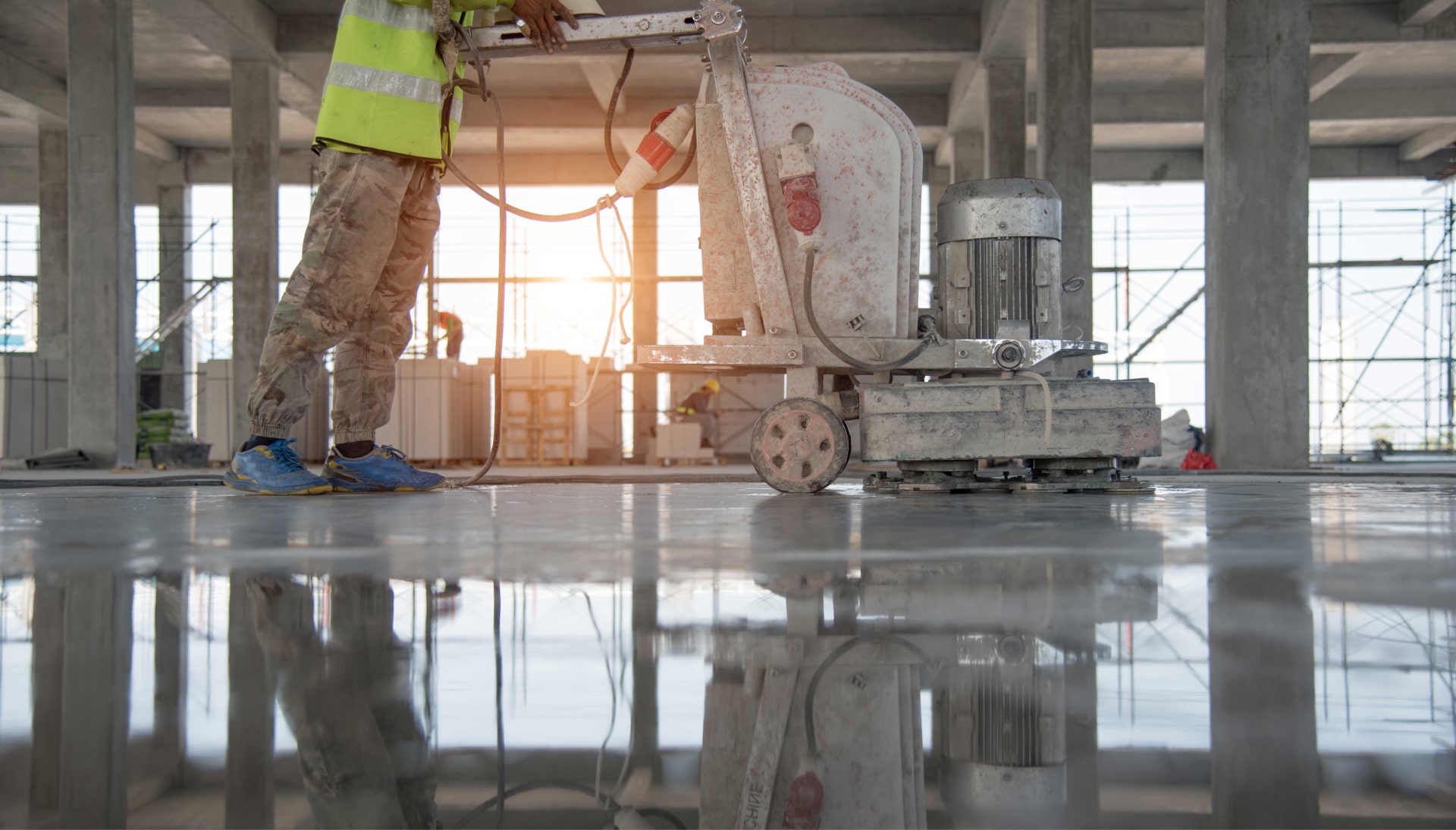Durable and Versatile: The Enduring Appeal of Concrete
Concrete. It’s more than just a construction material; it’s the foundation of modern infrastructure and design. From towering skyscrapers to the sidewalks we walk on, concrete’s strength and adaptability make it an indispensable part of our built environment. Its unique blend of durability, versatility, and cost-effectiveness positions it as a premier choice for both residential and commercial projects.
The Composition and Qualities of Concrete
At its core, concrete is a composite material consisting primarily of cement, water, and aggregates such as sand, gravel, or crushed stone. The cement acts as a binder, hardening and adhering the aggregates together to form a solid mass. The specific proportions of these ingredients can be adjusted to achieve different strengths, densities, and workability characteristics. This adaptability is one reason concrete is so widely used.
Key qualities of concrete include:
- High Compressive Strength: Concrete excels in resisting compressive forces, making it ideal for load-bearing structures.
- Durability: Properly mixed and cured concrete can withstand harsh environmental conditions for decades.
- Versatility: It can be molded into virtually any shape, making it suitable for a wide range of applications.
- Cost-Effectiveness: Compared to many other construction materials, concrete is relatively inexpensive and readily available.
- Fire Resistance: Concrete is non-combustible and provides excellent fire protection.
Applications Across Industries
Concrete’s robust nature allows it to be used in countless construction and design projects, each benefitting from its unique set of properties. Here are just a few examples:
Residential Construction
In homes, concrete forms the foundations, driveways, patios, and even interior elements like countertops and decorative walls. Stamped concrete can mimic the look of brick or stone, adding aesthetic appeal while maintaining concrete’s durability. Polished concrete floors are increasingly popular due to their modern look, low maintenance, and longevity.
Commercial Buildings
Large-scale commercial construction relies heavily on concrete for structural integrity. Foundations, walls, and floors of office buildings, retail spaces, and warehouses are commonly made of reinforced concrete, which combines concrete with steel reinforcing bars (rebar) to enhance tensile strength. ⨿MaterialSynergy is achieved through this combination, optimizing structural performance.
Infrastructure Projects
Bridges, tunnels, dams, and highways rely on concrete to withstand immense loads and environmental stresses. Concrete’s ability to be cast in place allows for the creation of complex shapes and structures necessary for these infrastructure projects. Properly designed and maintained, concrete infrastructure can last for generations.
Sustainability and Innovation in Concrete
While concrete production has environmental impacts, ongoing research and innovation are focused on creating more sustainable practices. These include:
- Using recycled aggregates: Incorporating materials like crushed glass or recycled concrete reduces waste and lowers the demand for virgin resources.
- Developing low-carbon cements: Alternative cement formulations can significantly reduce the carbon footprint of concrete production.
- Improving concrete durability: Extending the lifespan of concrete structures minimizes the need for repairs and replacements.
- Permeable concrete: This type of concrete allows water to drain through, reducing runoff and improving stormwater management.
With these developments, the future of concrete looks both promising and sustainable. It continues to adapt to the evolving needs of the construction industry, remaining a cornerstone of building and design.
Ensuring Longevity: Proper Mixing and Curing
The durability of concrete heavily depends on how well it is mixed and cured. Proper mixing ensures the cement is evenly distributed throughout the aggregates, creating a homogenous mixture that can properly harden. Curing, the process of maintaining moisture and temperature levels after concrete is poured, is crucial for hydration. Proper hydration allows the cement to fully react and achieve its designed strength. Without proper mixing and curing, concrete can be susceptible to cracking, scaling, and other forms of degradation, ultimately shortening its lifespan and functionality. Therefore, quality control during these initial stages is paramount for optimal concrete performance MaterialPerformance.
The Future of Concrete
Concrete stands as a testament to human ingenuity, its versatility and strength continue to shape the world around us. Ongoing innovations in materials science promise to enhance its sustainability, durability, and applicability. As architects and engineers continue to explore new techniques and designs, the future of concrete is set to become even more integral to our built environment. From high-performance mixes to self-healing technologies, concrete’s potential is ever-expanding, offering solutions for infrastructure and building challenges. With a focus on sustainability and efficiency, it will play a crucial role in creating resilient and environmentally responsible structures for future generations.
Services
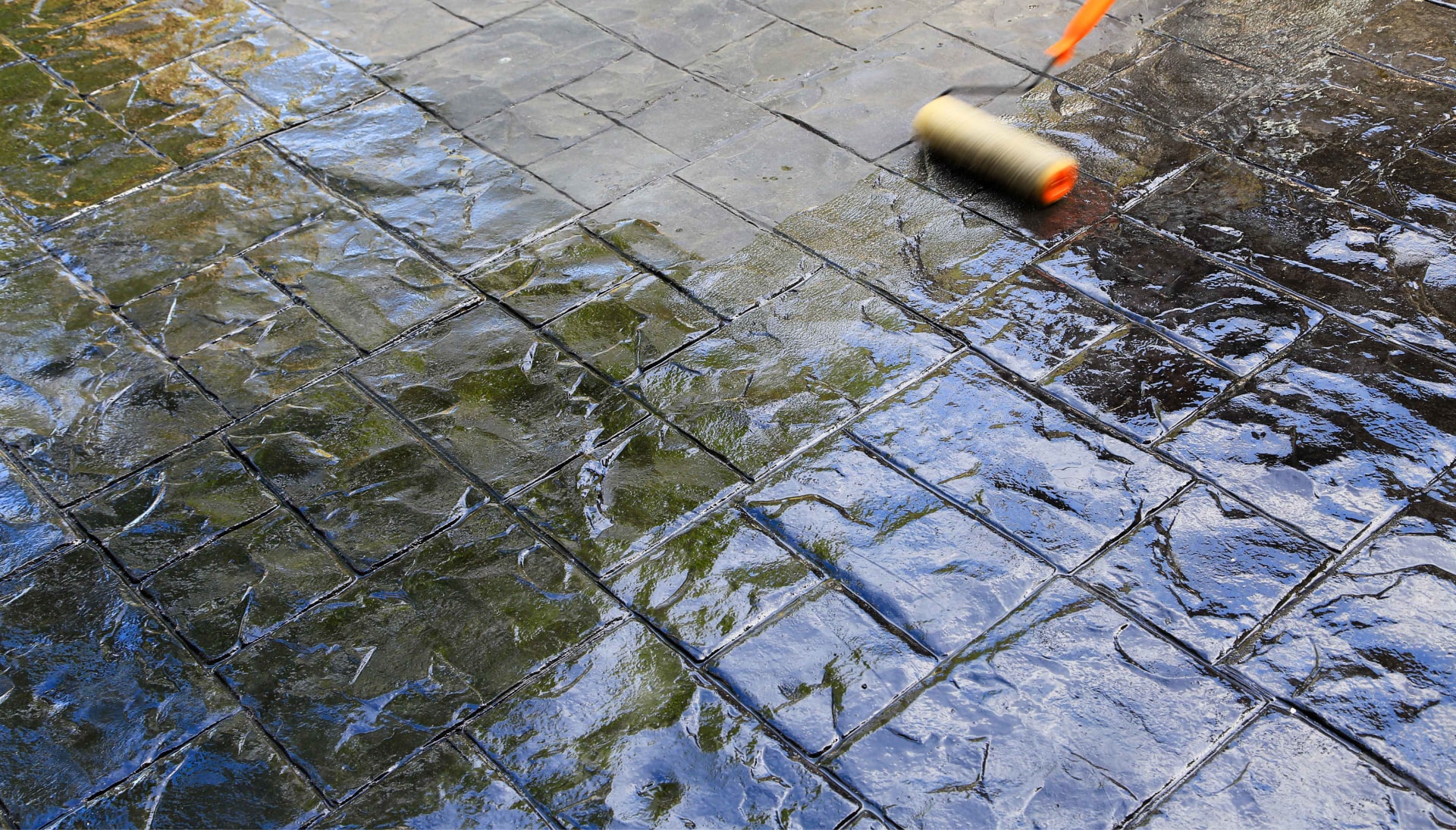
Concrete Patios in Johnson City
Improve the visual appeal of your commercial or residential outdoor space with a beautiful concrete patio designed by our partners.
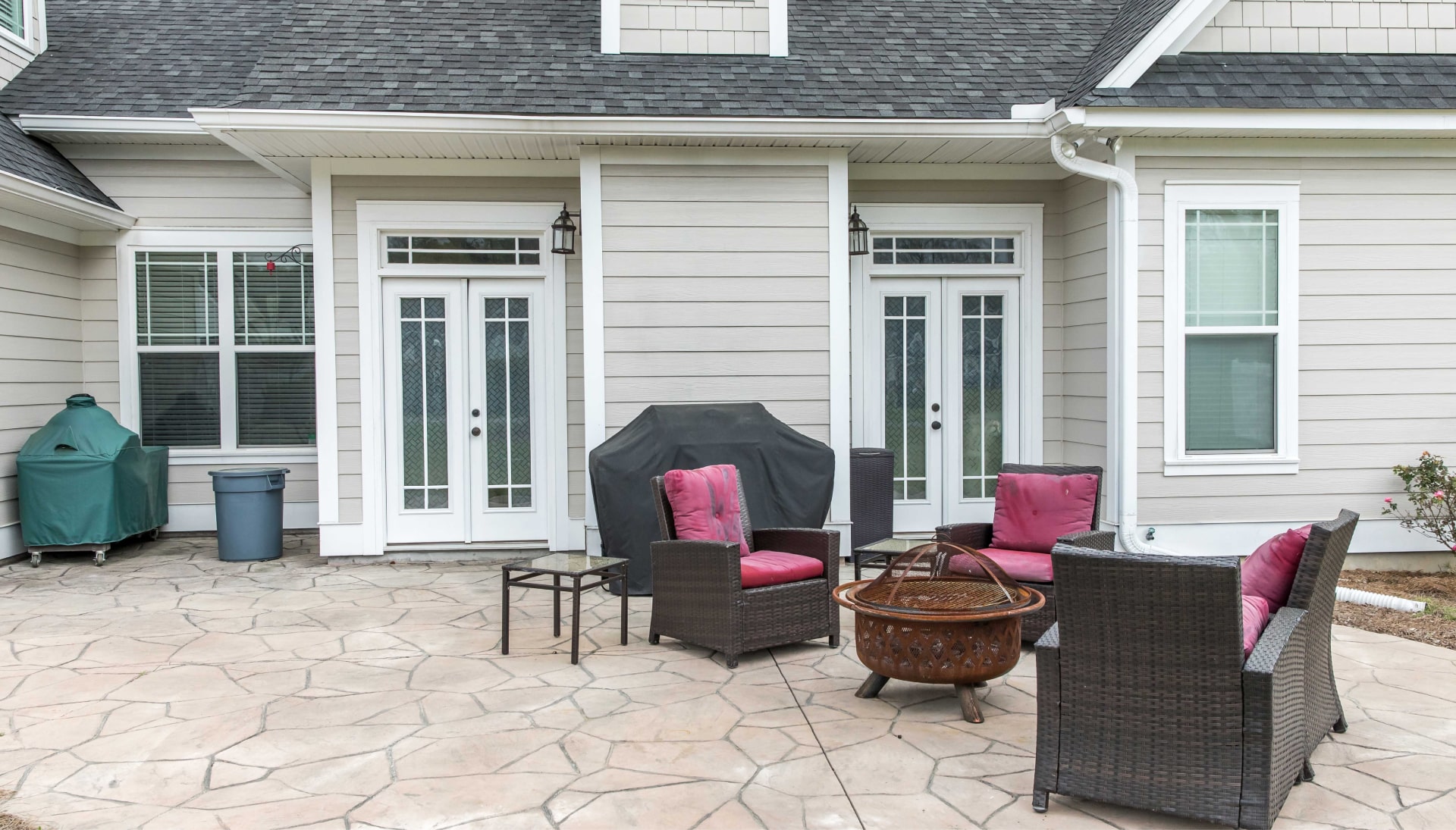
Beautiful Stamped Concrete of Johnson City
Go with the standard concrete look or get creative with one of the many gorgeous designs in decorative concrete that Johnson City, Tennessee locals are loving.
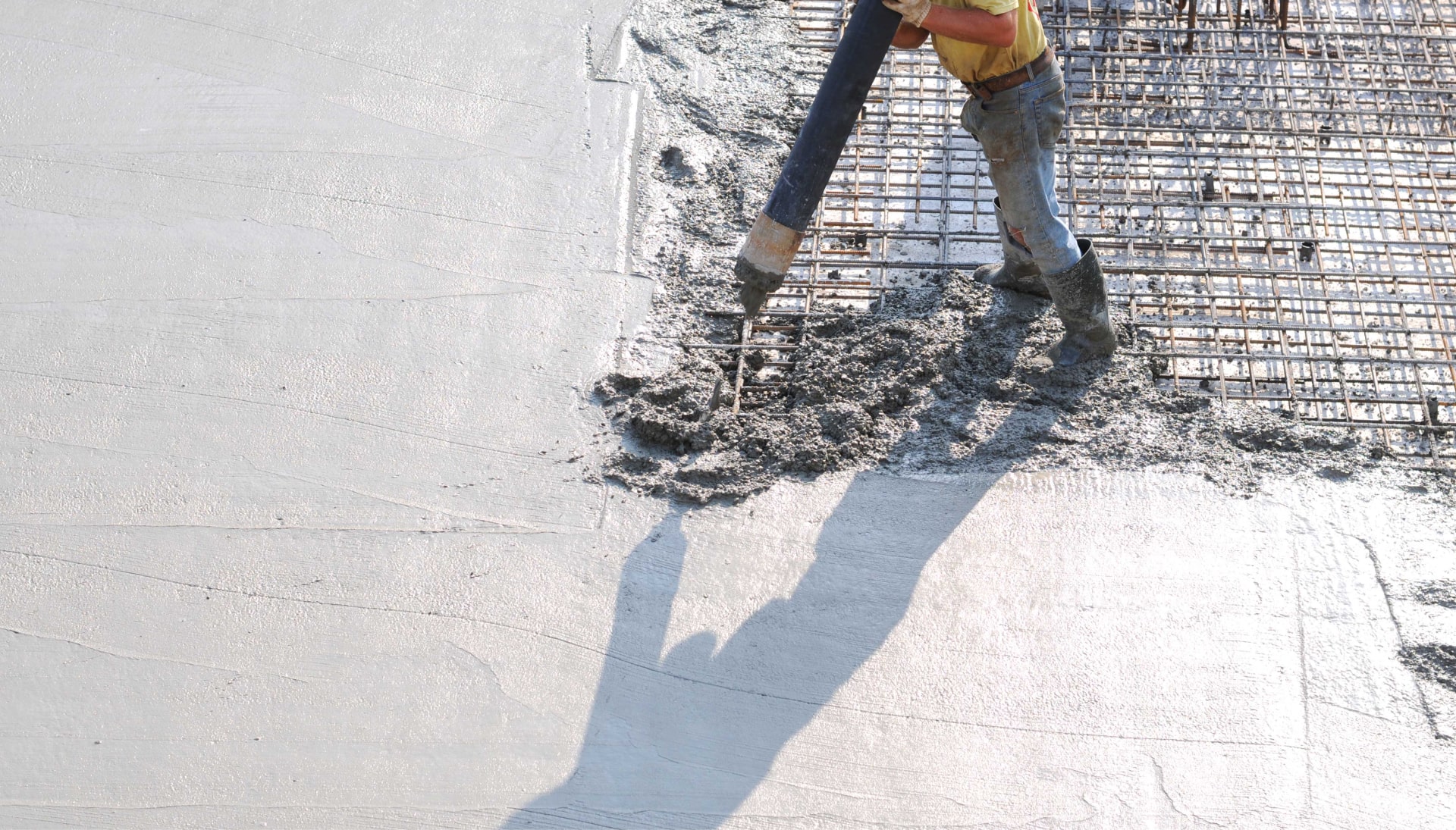
Foundation Repair in Johnson City, Tennessee
No concrete repair project is too big or too small for us. We’ve got you covered whether you need concrete driveway repair, concrete foundation repair, or any other kind of concrete repair in Johnson City.
Why choose Johnson City Concrete Co. for your Johnson City concrete needs
Durable Designs: Concrete Solutions for Modern Living
Concrete is the backbone of modern infrastructure, prized for its strength, durability, and versatility. In both residential and commercial settings, concrete provides a solid foundation and a blank canvas for innovative design. From driveways to decorative patios, understanding the possibilities of concrete empowers you to make informed decisions for your property.
The Enduring Benefits of Concrete
- Longevity: Properly installed and maintained concrete structures can last for decades, offering a superior return on investment.
- Versatility: Concrete can be molded into various shapes and textures, fitting seamlessly into any architectural style.
- Low Maintenance: Compared to other materials, concrete requires minimal upkeep, saving you time and resources.
- Sustainability: Concrete can be made with recycled materials, reducing its environmental impact.
Exploring Concrete Applications
Concrete is not just for foundations anymore. Its adaptability allows for a wide array of applications that enhance both the functionality and aesthetic appeal of your space.
Driveways and Walkways
A concrete driveway offers a smooth, durable surface that can withstand heavy traffic and harsh weather conditions. Stamped concrete provides decorative options, mimicking the look of brick or stone at a fraction of the cost. Similarly, concrete walkways create safe and attractive pathways around your home or business.
Patios and Outdoor Living Spaces
Extend your living space outdoors with a concrete patio. Whether you prefer a simple, broom-finished surface or an elaborate, multi-toned design, concrete offers endless possibilities for creating a comfortable and stylish outdoor retreat. Consider adding a fire pit or outdoor kitchen to maximize your enjoyment of the space.
Foundations and Structural Elements
As the bedrock of any building, a concrete foundation provides essential support and stability. Its resistance to moisture and pests makes it an ideal choice for ensuring the long-term integrity of your structure. Concrete walls and columns offer superior strength and fire resistance, enhancing the safety and security of your property.
Decorative Concrete
Unleash your creativity with decorative concrete. Staining, stamping, and polishing techniques can transform ordinary concrete into stunning works of art. From intricately patterned floors to custom-colored countertops, decorative concrete adds a touch of elegance and sophistication to any space.
Ensuring Quality and Durability
To maximize the lifespan and performance of your concrete structures, it is essential to partner with experienced professionals who understand the intricacies of concrete installation and maintenance.
Proper Installation Techniques
Correct mixing, pouring, and curing techniques are critical for achieving optimal strength and durability. Ensure that your contractor follows industry best practices and adheres to local building codes.
Regular Maintenance
While concrete is relatively low-maintenance, periodic cleaning and sealing can help prevent staining, cracking, and other forms of damage. Consult with your contractor about the best maintenance schedule for your specific concrete surfaces. Regular inspections can also help identify and address potential issues before they escalate.
Concrete: A Sustainable Choice
In today’s world, sustainability is a key consideration for any construction project. Concrete offers several environmental advantages that make it a responsible choice for building and design.
Recycled Materials
Concrete can incorporate recycled aggregates, such as crushed glass or recycled concrete, reducing the demand for virgin materials and diverting waste from landfills. This helps conserve natural resources and minimizes the environmental impact of your project.
Energy Efficiency
Concrete’s thermal mass properties can help regulate indoor temperatures, reducing the need for heating and cooling. This can translate into significant energy savings over the lifespan of your building. In addition, light-colored concrete surfaces can reflect sunlight, reducing the urban heat island effect.
Durability and Longevity
By lasting longer than other materials, concrete reduces the need for frequent replacements, minimizing waste and conserving resources. Choosing concrete is not just a practical decision, it’s a sustainable one.
Elevate Your Space with Concrete
From foundational elements to decorative finishes, concrete provides a versatile and durable solution for modern living. By understanding its benefits and exploring its applications, you can transform your space into a functional and aesthetically pleasing environment. Partner with skilled professionals, embrace sustainable practices, and unlock the endless possibilities of concrete.
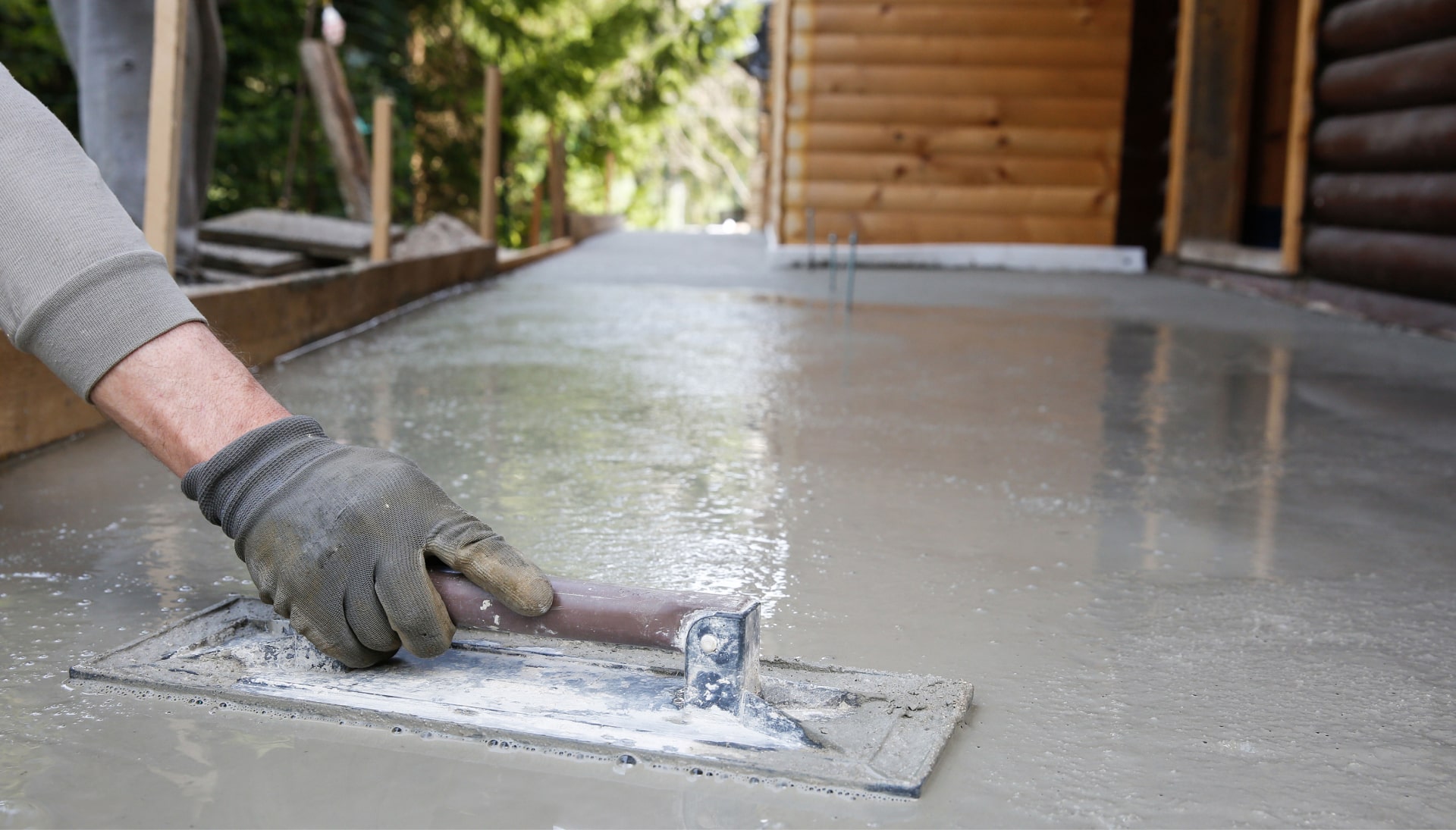
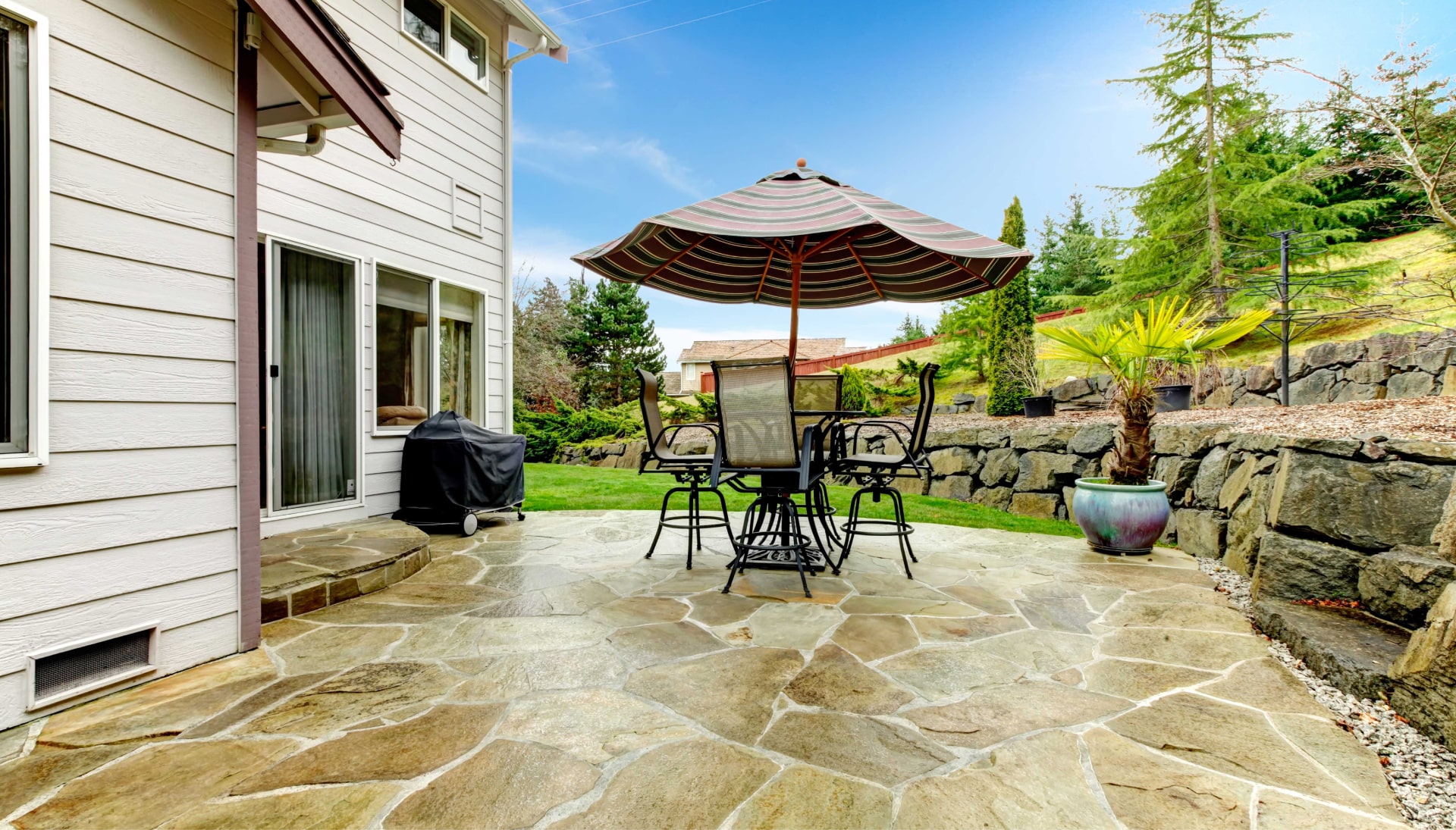
Professional Johnson City Concrete Patios
The Enduring Strength of Concrete: A Foundation for Your Future
Concrete is more than just a building material; it’s the backbone of modern infrastructure. From towering skyscrapers to the foundations of our homes, concrete provides unparalleled strength, durability, and versatility. Choosing concrete means investing in a solution that stands the test of time, offering resilience against the elements and a solid base for your projects.
Why Concrete Remains the Premier Choice
For generations, concrete has been the preferred material for construction, and its popularity continues to grow. Here’s why:
- Unmatched Durability: Concrete structures are known to last for decades, often centuries, with minimal maintenance. This longevity translates into significant cost savings over the lifespan of your project.
- Exceptional Strength: Concrete’s compressive strength is far superior to many other building materials, allowing it to bear heavy loads and withstand extreme conditions.
- Design Flexibility: Concrete can be molded into virtually any shape, offering architects and builders limitless design possibilities. From intricate facades to smooth, modern surfaces, concrete adapts to your vision.
- Fire Resistance: Concrete is inherently non-combustible, providing a crucial safety advantage in the event of a fire. It acts as a barrier, slowing the spread of flames and protecting the structural integrity of the building.
- Cost-Effectiveness: While the initial cost of concrete may be comparable to other materials, its long lifespan and low maintenance requirements make it a highly economical choice in the long run.
Applications of Concrete: From Residential to Commercial
The versatility of concrete makes it suitable for a wide range of applications:
Residential
Concrete is used extensively in residential construction for foundations, driveways, patios, and even interior design elements like countertops and flooring. Its thermal mass properties can also help regulate indoor temperatures, reducing energy consumption.
Commercial
In the commercial sector, concrete is the go-to material for high-rise buildings, parking garages, warehouses, and infrastructure projects like bridges and tunnels. Its strength and durability are essential for ensuring the safety and longevity of these structures.
Infrastructure
Our roads, bridges, and dams rely on the strength and stability of concrete. Its ability to withstand heavy traffic, erosion, and seismic activity makes it an indispensable material for maintaining our critical infrastructure.
Sustainable Concrete: Building for a Greener Future
The concrete industry is constantly evolving to meet the demands of a more sustainable world. Innovative techniques and materials are being developed to reduce the environmental impact of concrete production:
- Recycled Aggregates: Using recycled materials like crushed concrete and demolition debris in concrete mixes reduces the need for virgin resources and diverts waste from landfills.
- Supplementary Cementitious Materials (SCMs): SCMs, such as fly ash and slag, are byproducts of other industrial processes that can be used to partially replace cement in concrete. This reduces the carbon footprint of concrete production.
- Permeable Concrete: Permeable concrete allows rainwater to filter through the surface and into the ground, reducing stormwater runoff and replenishing groundwater supplies.
Choosing the Right Concrete Mix
Selecting the appropriate concrete mix is crucial for ensuring the success of your project. Factors to consider include:
- Desired Strength: The required strength of the concrete will depend on the intended application and the loads it will need to bear.
- Exposure Conditions: Concrete that will be exposed to harsh weather conditions, such as freezing temperatures or de-icing salts, will require a specialized mix design.
- Workability: The workability of the concrete will affect its ease of placement and finishing.
- Budget: The cost of concrete can vary depending on the mix design and the availability of materials.
Consulting with a qualified concrete contractor or supplier is essential for selecting the right mix for your specific needs.
Investing in a Solid Foundation
Concrete remains a timeless choice for construction, offering unmatched strength, durability, and versatility. By choosing concrete, you are investing in a solution that will stand the test of time, providing a solid foundation for your future. From residential homes to commercial buildings and critical infrastructure, concrete continues to be the cornerstone of our built environment.
Durable Foundations: Your Concrete Experts
Welcome to the cornerstone of quality in concrete solutions. We provide reliable, durable, and expertly crafted concrete services to meet every project’s demand. Whether you’re envisioning a new driveway, a robust foundation, or decorative concrete enhancements, our team is equipped to deliver excellence.
Why Choose Our Concrete Services?
Selecting the right concrete contractor is critical. We offer a comprehensive approach to concrete work, ensuring every aspect of your project is handled with precision and care.
- Expertise and Experience: With years of dedicated service in the concrete industry, our skilled professionals bring unparalleled knowledge and experience to every job.
- Quality Materials: We source only the finest concrete mixes and materials, ensuring your project stands the test of time and weather.
- Custom Solutions: We understand that every project is unique. Our team works closely with you to tailor our services to your specific needs and aesthetic preferences.
- Reliable and Efficient Service: We pride ourselves on completing projects on time and within budget, minimizing disruption and maximizing satisfaction.
Our Concrete Services
We offer a full spectrum of concrete services designed to cover all your construction and renovation needs:
Concrete Foundations
A strong foundation is the backbone of any structure. We specialize in pouring durable and precise concrete foundations for residential, commercial, and industrial buildings. Our foundations are engineered to provide stability and longevity, ensuring your building stands firm for generations.
Driveways and Walkways
Enhance your property’s curb appeal with expertly installed concrete driveways and walkways. We offer a variety of finishes, from classic smooth surfaces to decorative stamped patterns, that complement your home’s style and provide a durable, low-maintenance solution.
Patios and Outdoor Living Spaces
Transform your backyard into an inviting outdoor retreat with our custom concrete patios. We create beautiful and functional spaces perfect for entertaining or relaxing, designed to seamlessly integrate with your landscape.
Concrete Repairs and Resurfacing
Restore the integrity and appearance of your existing concrete surfaces with our repair and resurfacing services. Whether it’s patching cracks, leveling uneven surfaces, or applying a new decorative finish, we can revitalize your concrete and extend its lifespan.
Decorative Concrete
Add a touch of elegance and personalization with our decorative concrete options. From stamped concrete that mimics the look of natural stone to colored and exposed aggregate finishes, we can create unique and eye-catching designs that enhance your property’s aesthetic.
The Concrete Process: From Start to Finish
We believe in a transparent and collaborative approach to every project. Here’s what you can expect when you choose us for your concrete needs:
- Consultation and Planning: We begin with a detailed consultation to understand your project goals, assess the site, and develop a comprehensive plan tailored to your specific requirements.
- Preparation and Excavation: Proper preparation is essential for a successful concrete project. We handle all necessary excavation, grading, and formwork to ensure a solid foundation for your concrete pour.
- Pouring and Finishing: Our skilled team carefully pours and finishes the concrete, paying close attention to detail to achieve a smooth, level, and durable surface. We offer a variety of finishing options, including broom finishes, exposed aggregate, and decorative stamping.
- Curing and Sealing: Proper curing is crucial for concrete strength and longevity. We utilize industry-best practices to ensure the concrete cures properly, followed by sealing to protect against moisture, stains, and weathering.
- Final Inspection and Cleanup: We conduct a thorough final inspection to ensure your complete satisfaction. Our team also handles all cleanup, leaving your property clean and ready to enjoy.
Committed to Quality and Customer Satisfaction
Our commitment to quality and customer satisfaction is at the heart of everything we do. We strive to exceed your expectations with every project, delivering superior craftsmanship, exceptional service, and lasting value.
Ready to get started? Contact us today for a free consultation and let us help you build a solid foundation for your next project.
Concrete driveway and foundation services for your Johnson City property
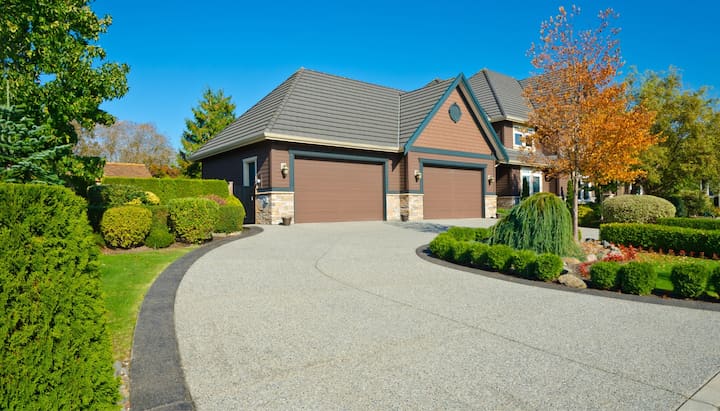
Durable and Versatile: Exploring the World of Concrete Solutions
Concrete is more than just a building material; it’s the foundation of our modern world. From towering skyscrapers to the sidewalks we walk on, concrete’s strength, durability, and versatility make it an indispensable resource for countless construction projects. This section delves into the diverse applications of concrete, highlighting its benefits and exploring how it can be tailored to meet specific needs.
The Enduring Strength of Concrete
One of concrete’s most appealing qualities is its remarkable strength. Properly mixed and cured concrete can withstand immense pressure, making it ideal for load-bearing structures like bridges, dams, and high-rise buildings. This inherent strength ensures structural integrity and long-term stability, reducing the risk of failures and extending the lifespan of construction projects. Moreover, concrete’s resistance to fire and weathering further enhances its durability, making it a reliable choice for demanding environments.
Versatility in Application
Concrete’s adaptability extends beyond its structural capabilities. It can be molded into virtually any shape, allowing for creative architectural designs and customized solutions. This versatility makes it suitable for a wide range of applications, including:
- Foundations: Providing a stable base for buildings and other structures.
- Walls and Floors: Creating durable and fire-resistant surfaces.
- Pavements and Roads: Offering smooth and long-lasting surfaces for transportation.
- Decorative Concrete: Enhancing aesthetic appeal through stamped, stained, and polished finishes.
- Precast Concrete: Manufacturing components off-site for faster and more efficient construction.
Benefits of Choosing Concrete
Selecting concrete for your construction needs offers numerous advantages:
- Longevity: Concrete structures can last for decades with minimal maintenance.
- Cost-Effectiveness: The readily available materials and relatively simple construction process make concrete an economical choice.
- Fire Resistance: Concrete’s non-combustible nature provides crucial protection against fire damage.
- Thermal Mass: Concrete’s ability to absorb and store heat helps regulate indoor temperatures, reducing energy consumption.
- Sustainability: With the use of recycled aggregates and supplementary cementitious materials, concrete can contribute to sustainable construction practices.
Exploring Different Types of Concrete
The composition of concrete can be adjusted to achieve specific properties and performance characteristics. Some common types include:
- Ready-Mix Concrete: Batched at a central plant and delivered to the construction site in a ready-to-use state.
- High-Strength Concrete: Formulated to achieve exceptionally high compressive strength for demanding structural applications.
- Lightweight Concrete: Incorporating lightweight aggregates to reduce density and improve insulation.
- Self-Consolidating Concrete: Designed to flow easily and fill intricate forms without vibration.
- Fiber-Reinforced Concrete: Enhanced with fibers to improve tensile strength and crack resistance.
Concrete and Sustainable Construction
As the construction industry increasingly focuses on sustainability, concrete is evolving to meet these demands. Innovations like the use of recycled aggregates, supplementary cementitious materials (SCMs) such as fly ash and slag, and carbon capture technologies are reducing concrete’s environmental footprint. Furthermore, concrete’s durability and thermal mass contribute to the long-term energy efficiency of buildings, minimizing their environmental impact over their lifespan. By embracing these sustainable practices, concrete can remain a vital and responsible building material for generations to come. MaterialEfficacy EcoFriendlyDesign
Conclusion
Concrete’s strength, versatility, and increasing sustainability make it an ideal choice for a wide range of construction projects. Whether you’re building a new home, designing a commercial structure, or planning infrastructure improvements, understanding the benefits and applications of concrete is essential for achieving durable, cost-effective, and environmentally responsible results. By staying informed about the latest advancements in concrete technology and sustainable practices, you can leverage this remarkable material to build a better future.
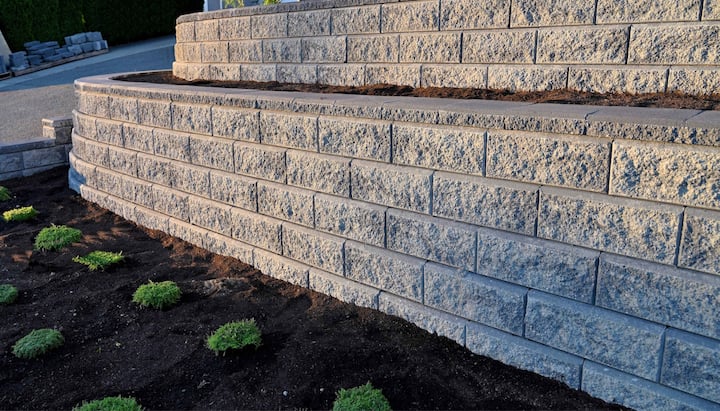
Durable Design: Concrete Solutions for Modern Living
Concrete is more than just a building material; it’s a cornerstone of modern infrastructure and design. Its inherent strength and versatility make it an ideal choice for a wide range of applications, from foundational structures to decorative elements. Understanding the unique properties and benefits of concrete is essential for any construction or design project.
The Strength and Versatility of Concrete
Concrete’s defining characteristic is its exceptional strength, making it capable of withstanding significant loads and environmental stresses. This durability ensures the longevity of structures, reducing the need for frequent repairs and replacements. Furthermore, concrete can be molded into virtually any shape, offering unparalleled design flexibility. Whether you’re constructing a modern home, a robust commercial building, or intricate landscaping features, concrete provides a reliable and adaptable solution.
- High Compressive Strength: Withstands heavy loads and pressure.
- Design Flexibility: Can be formed into any shape or size.
- Weather Resistance: Withstands extreme temperatures and moisture.
Applications of Concrete in Construction and Design
The applications of concrete are vast and varied. In residential construction, it is used for foundations, driveways, patios, and even countertops. Commercial buildings benefit from concrete’s structural integrity, which provides a solid framework for skyscrapers, warehouses, and retail spaces. In landscaping, concrete can create aesthetically pleasing features such as walkways, retaining walls, and decorative sculptures. Moreover, concrete is increasingly used in sustainable construction projects, offering energy efficiency and environmental benefits.
Residential Uses:
- Foundations
- Driveways and Walkways
- Patios and Decks
- Concrete Countertops
Commercial Uses:
- High-rise Buildings
- Warehouses
- Parking Structures
- Retaining Walls
Landscaping Uses:
- Walkways and Paths
- Retaining Walls
- Decorative Features
- Outdoor Furniture
Benefits of Choosing Concrete
Opting for concrete in your construction or design project comes with numerous advantages. Its durability translates to long-term cost savings due to reduced maintenance and replacement needs. Concrete is also fire-resistant, providing an added layer of safety and security. Its thermal mass helps regulate indoor temperatures, improving energy efficiency and lowering utility bills. Furthermore, concrete is an environmentally friendly choice, as it can be made from recycled materials and contributes to sustainable building practices. By choosing concrete, you invest in a reliable, safe, and eco-conscious solution.
- Durability: Long-lasting with minimal maintenance.
- Fire Resistance: Enhances safety and reduces fire damage.
- Energy Efficiency: Helps regulate indoor temperatures.
- Sustainability: Can be made from recycled materials.
Concrete: A Sustainable Choice
Concrete is a sustainable building material, and its production can be made even more environmentally friendly. Fly ash, slag, and silica fume can be added to decrease the amount of cement necessary in a mix. Cement production accounts for about 8% of global carbon emissions. So, reducing the amount of cement in a mix can dramatically reduce the carbon footprint of a project. Another benefit of using recycled materials is that it may improve concrete’s durability and resistance to chemical attack. When a building reaches the end of its service life, concrete can be recycled and reused as aggregate for new concrete mixes. Concrete is a long-lasting and durable material that reduces the need for frequent replacement, lowering life cycle environmental costs.
Understanding these key aspects of concrete empowers you to make informed decisions for your construction and design endeavors. With its strength, versatility, and sustainability, concrete continues to be a fundamental component of modern infrastructure and creative design.
Durable and Versatile: Exploring the World of Concrete Solutions
Concrete is the backbone of modern construction, prized for its strength, durability, and versatility. From the foundations of our homes to the towering skyscrapers that define city skylines, concrete plays a crucial role in building the world around us. Understanding its properties, applications, and maintenance is essential for anyone involved in construction, landscaping, or home improvement.
The Enduring Strength of Concrete
One of the primary reasons concrete is so widely used is its compressive strength. It can withstand immense loads, making it ideal for structural elements like walls, columns, and foundations. This strength ensures buildings remain stable and safe for decades, even under harsh environmental conditions. But concrete’s durability isn’t just about resisting pressure; it’s also about withstanding the elements.
- Resistance to Weather: Concrete can endure extreme temperatures, from scorching summers to freezing winters.
- Fire Resistance: Unlike many other building materials, concrete is non-combustible and can protect structures from fire damage.
- Longevity: With proper care and maintenance, concrete structures can last for generations.
Versatile Applications of Concrete
Concrete isn’t just for foundations; its versatility allows it to be used in a wide range of applications. Its ability to be molded into different shapes and textures makes it suitable for both functional and aesthetic purposes. Here are just a few examples:
- Driveways and Walkways: Concrete provides a durable and attractive surface for vehicle and pedestrian traffic.
- Patios and Outdoor Living Spaces: Stamped or colored concrete can create beautiful and functional outdoor areas.
- Retaining Walls: Concrete walls can prevent soil erosion and create level surfaces in sloped areas.
- Decorative Concrete: Concrete can be stained, stamped, or polished to create unique and visually appealing designs.
Maintaining Your Concrete Surfaces
While concrete is incredibly durable, it’s not indestructible. Proper maintenance is essential to extend the life of your concrete surfaces and prevent damage. Here are some key maintenance tips:
Sealing
Applying a concrete sealer helps protect against water penetration, stains, and damage from de-icing salts. It’s recommended to seal concrete surfaces every one to three years, depending on the level of exposure.
Cleaning
Regular cleaning helps remove dirt, debris, and stains that can degrade the surface of the concrete. Use a mild detergent and a brush to scrub away any buildup. For tougher stains, consider using a specialized concrete cleaner.
Repairing Cracks
Small cracks can appear in concrete over time due to settling or temperature changes. Addressing these cracks promptly can prevent them from growing larger and causing more significant damage. Use a concrete crack filler to seal the cracks and prevent water from entering.
The Future of Concrete
As technology advances, so does the world of concrete. Researchers are constantly developing new and innovative ways to improve its properties and expand its applications. Some exciting developments include:
- Self-Healing Concrete: Concrete that can repair cracks on its own, extending its lifespan and reducing maintenance needs.
- Permeable Concrete: Concrete that allows water to drain through it, reducing runoff and preventing flooding.
- Sustainable Concrete: Concrete made with recycled materials, reducing its environmental impact.
Whether you’re a homeowner, contractor, or simply interested in the built environment, understanding concrete is essential. Its strength, versatility, and enduring nature make it a cornerstone of modern construction and a material that will continue to shape the world around us for generations to come. By investing in quality concrete and following proper maintenance practices, you can ensure that your concrete surfaces remain strong, durable, and beautiful for years to come. Exploring these solutions opens up a world of possibilities for construction and design, making concrete an indispensable material in our lives.
Durable and Versatile: Discover the Strength of Concrete with Us
Concrete is more than just a building material; it’s the foundation of modern infrastructure and design. Its strength, versatility, and longevity make it an indispensable choice for a wide array of applications. From towering skyscrapers to cozy homes, concrete provides the reliable structure we depend on every day. Explore the world of concrete with us, and see why it remains the top choice for builders and homeowners alike.
The Enduring Advantages of Concrete
Choosing concrete means opting for a material that stands the test of time. Here are some key benefits:
- Unmatched Durability: Concrete withstands harsh weather conditions, heavy loads, and the daily wear and tear of life.
- Design Flexibility: Concrete can be molded into nearly any shape, offering endless possibilities for architectural creativity.
- Low Maintenance: Once installed, concrete requires minimal upkeep, saving you time and money.
- Cost-Effective: With its long lifespan and low maintenance, concrete provides excellent value for your investment.
- Eco-Friendly: Concrete is made from readily available materials and can be recycled, making it a sustainable choice.
Concrete Applications: Building a Better World
The adaptability of concrete makes it suitable for numerous projects. Here are just a few examples:
Residential Uses
Concrete is perfect for creating solid foundations, driveways, patios, and even decorative features in your home. It offers both security and aesthetic appeal.
Commercial and Industrial Uses
From warehouses and factories to office buildings and retail spaces, concrete provides the robust infrastructure needed for business operations. Its fire-resistant properties also enhance safety.
Infrastructure Projects
Bridges, highways, and dams rely on concrete’s strength and stability to ensure public safety and long-term performance. Concrete is essential for connecting communities and supporting economic growth.
Working with Concrete: What You Need to Know
Successful concrete projects require careful planning and execution. Here are some factors to consider:
- Proper Mixing: Achieving the correct water-to-cement ratio is crucial for concrete’s strength and durability.
- Reinforcement: Adding steel rebar enhances concrete’s tensile strength, preventing cracking and increasing its load-bearing capacity.
- Curing: Keeping concrete moist during the curing process ensures proper hydration and optimal strength development.
- Sealing: Applying a sealant protects concrete from moisture, stains, and other environmental factors, extending its lifespan.
Innovations in Concrete Technology
The concrete industry is continually evolving, with new technologies and materials improving its performance and sustainability. Some exciting developments include:
- Self-Healing Concrete: This innovative material can repair cracks automatically, reducing maintenance and extending service life.
- Pervious Concrete: Designed to allow water to drain through, pervious concrete reduces runoff and helps recharge groundwater supplies.
- High-Performance Concrete: With increased strength and durability, high-performance concrete is ideal for demanding applications like high-rise buildings and bridges.
Concrete is a versatile and reliable material that continues to shape the world around us. Whether you’re planning a small home project or a large-scale construction endeavor, understanding the properties and applications of concrete is essential for success. Its durability, design flexibility, and sustainability make it a smart choice for any building project, ensuring a solid foundation for years to come. Consider concrete for your next project and experience the benefits of this enduring material firsthand.
Did we miss anything?
The Enduring Strength of Concrete: Foundations for a Solid Future
Concrete is the unsung hero of modern construction. It’s the foundation upon which we build our homes, offices, and infrastructure. From towering skyscrapers to the sidewalks we walk on, concrete provides the strength, durability, and versatility needed to shape our world. But concrete is more than just a building material; it’s a testament to human ingenuity and our ability to create structures that stand the test of time.
Why Choose Concrete?
When it comes to construction materials, concrete offers a unique combination of benefits that make it an ideal choice for a wide range of applications. Here’s a closer look at what makes concrete stand out:
- Durability: Concrete is renowned for its exceptional durability. It can withstand harsh weather conditions, resist fire, and endure heavy loads without compromising its structural integrity. This longevity translates to lower maintenance costs and a longer lifespan for buildings and infrastructure.
- Versatility: Concrete can be molded into virtually any shape or size, making it suitable for diverse design requirements. Whether you need a simple foundation or an intricate architectural element, concrete can be customized to meet your specific needs.
- Cost-Effectiveness: While the initial cost of concrete may be comparable to other materials, its long-term durability and low maintenance requirements make it a cost-effective choice over the lifespan of a project.
- Sustainability: Concrete is made from readily available materials, such as cement, water, and aggregates. It can also incorporate recycled materials, reducing its environmental impact. Additionally, concrete’s thermal mass helps to regulate building temperatures, leading to energy savings.
Applications of Concrete
The versatility of concrete allows it to be used in a vast array of construction projects. Here are just a few examples:
- Residential Construction: Concrete foundations provide a stable and secure base for homes. Concrete driveways, patios, and walkways offer durability and aesthetic appeal.
- Commercial Construction: Concrete is the backbone of commercial buildings, providing the structural support needed for offices, retail spaces, and industrial facilities.
- Infrastructure: Concrete is essential for building roads, bridges, tunnels, and dams. Its strength and durability ensure the safety and longevity of these critical infrastructure components.
- Decorative Concrete: Concrete can be transformed into stunning decorative elements through techniques like staining, stamping, and polishing. This allows for the creation of unique and visually appealing surfaces.
The Future of Concrete
Innovation in concrete technology is constantly evolving, leading to new and improved materials with enhanced properties. Researchers are exploring ways to make concrete even more durable, sustainable, and versatile. Self-healing concrete, which can repair cracks automatically, and pervious concrete, which allows water to drain through it, are just two examples of the exciting developments in this field.
Concrete will continue to play a vital role in shaping our built environment for generations to come. Its enduring strength, versatility, and cost-effectiveness make it an indispensable material for construction professionals and homeowners alike. By embracing innovation and sustainable practices, we can ensure that concrete remains a cornerstone of our world.
